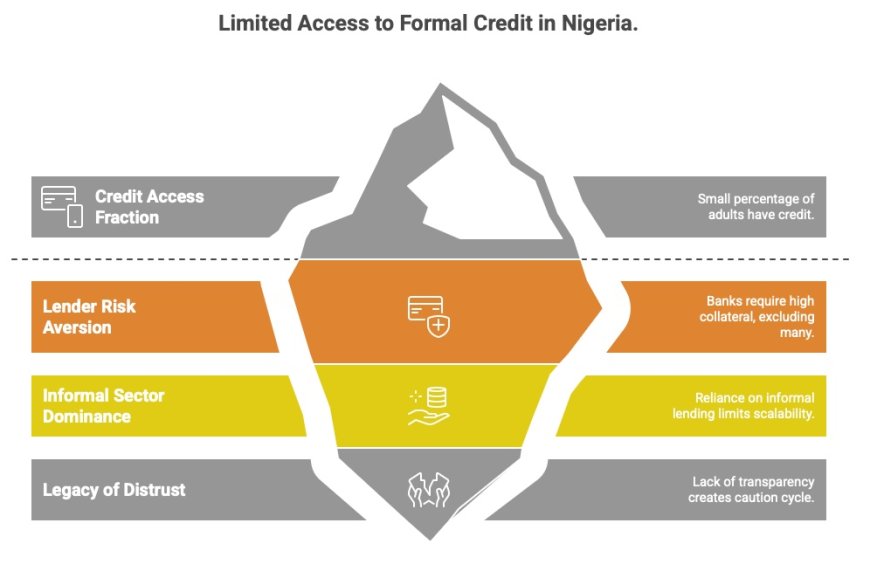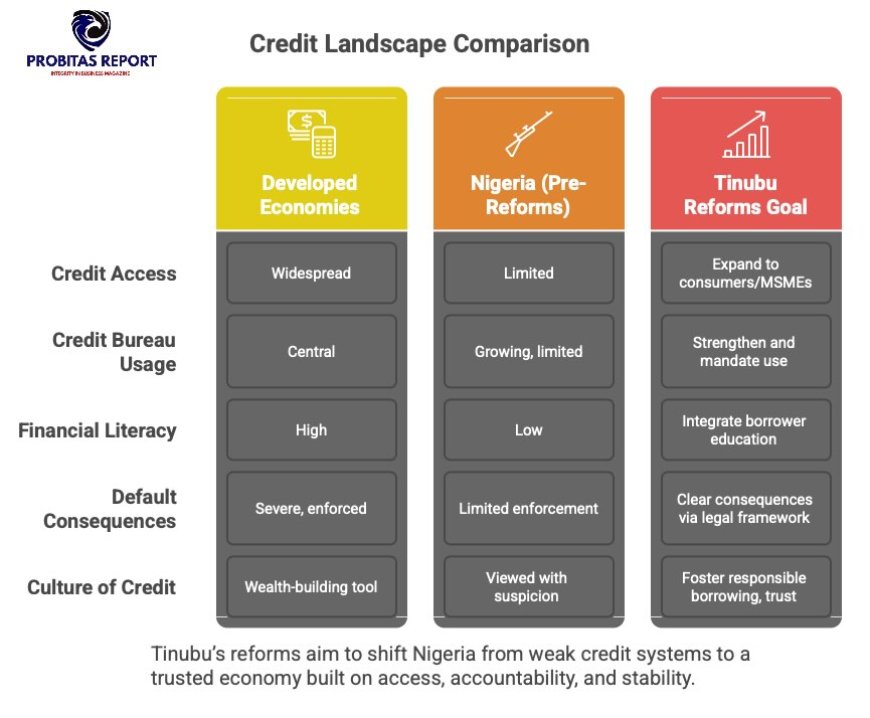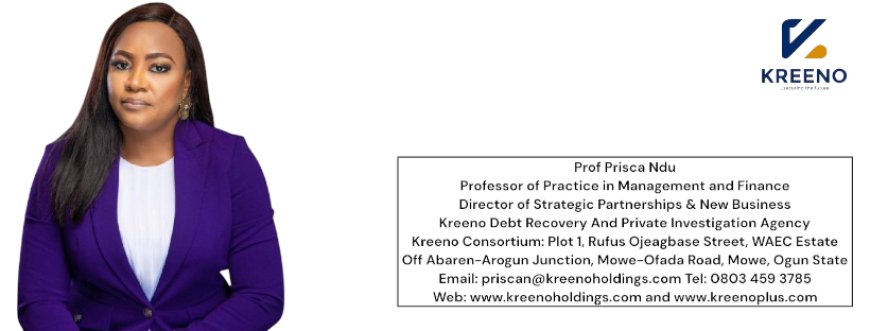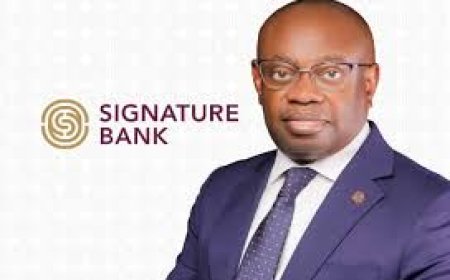From Transactions to Trust: How Borrower Orientation is Reshaping Nigeria’s Financial Future
Explore how borrower orientation is transforming Nigeria’s financial sector. Learn why shifting from transactions to trust is key to sustainable banking, stronger relationships, and long-term economic growth.

If you’ve been following the news from Africa’s largest economy, you know Nigeria is in the midst of a profound transformation. President Bola Tinubu’s administration has embarked on a series of ambitious reforms, from removing the costly fuel subsidy to unifying the foreign exchange rates. But beyond these headline-grabbing moves lies a quieter, more fundamental revolution: the deliberate building of a trusted credit economy.
For decades, credit in Nigeria has been a privilege for the few large corporations and the wealthy elite. For the average Nigerian artisan, farmer, or small business owner, access to formal loans was a distant dream. But that’s changing. Initiatives like the newly established Nigerian Consumer Credit Corporation (CREDICORP) are designed to change the very fabric of financial inclusion, aiming to bring millions into the formal credit system.
However, as the doors to credit swing wider, a critical question emerges: Are we ready to be borrowers? This isn’t just about getting a loan; it’s about understanding the covenant of trust that comes with it. This is where borrower orientation becomes the undeniable heartbeat of this new economic vision.
The Great Divide: Nigeria’s Credit System vs. Developed Economies
To appreciate the scale of the challenge and opportunity, it’s helpful to glance at established credit economies like the United States or the United Kingdom. In these systems, credit isn't just a financial tool; it's a cultural institution. A citizen’s credit score is a key part of their financial identity, determining everything from their ability to buy a home to the interest rate they get on a car loan. The system works because of a foundation of mutual trust, reinforced by robust legal frameworks, transparent credit bureaus, and, crucially, a population that is generally financially literate about the implications of borrowing and defaulting.
Now, let’s contrast this with the traditional Nigerian landscape. According to a World Bank report, only a fraction of adults in Nigeria have access to formal credit. The reasons are multifaceted:
“A loan without trust is a ticking liability, not an asset.”

The result is a stark gap, not just in access, but in the very infrastructure of trust that makes credit economies thrive.
“The true backbone of a credit economy isn’t capital—it’s confidence.”

Tinubu Reforms Nigeria: Building the Architecture of Trust
The administration isn’t just turning on the credit taps and hoping for the best. The reforms are strategically designed to build the pillars of a functional system. The establishment of the National Credit Guarantee Scheme is a masterstroke in de-risking the market for lenders, encouraging them to lend to segments they previously considered too risky.
But a guarantee scheme alone cannot build trust; it can only insure against its absence. The true genius of the vision lies in its focus on the human element, which is the borrower. This is the core of borrower orientation. It’s the understanding that for the system to work, borrowers must be empowered, educated, and equipped to be trustworthy partners.
As President Tinubu stated, the goal is to “strengthen the confidence of the financial system,” and this confidence is a two-way street.
Financial Literacy for Borrowers: The Cornerstone of Orientation
Borrower orientation goes far beyond signing contracts; it ensures borrowers truly understand what they are committing to. They must know the full loan terms, not just interest rates but also fees and whether the rate is fixed or variable. They should have clarity on the repayment timeline, with a clear view of due dates and amortization schedules. Borrowers also need to grasp the responsibility of debt, how it affects their monthly budget and future borrowing power. Orientation must make clear the consequences of default, from damaged credit history to reduced access to finance. When financial literacy is embedded in this way, credit becomes a tool for growth, stability, and trust in the economy. Integrating this education into the loan origination process through digital platforms, partner NGOs, and community banks is non-negotiable. An informed borrower is an empowered one, more likely to plan repayments and less likely to default out of confusion or frustration.
The Ripple Effect: How Trust Builds a Nation
When borrower orientation is taken seriously, its benefits cascade through the entire economy. Defaults are reduced because educated borrowers who understand the system are better equipped to manage their finances and honor their commitments. As defaults decline, lenders face lower risks, which reduces overall costs and gradually translates into lower interest rates, making credit both cheaper and more accessible. With trust established, lenders are encouraged to extend services to previously excluded groups such as farmers, market women, and young tech entrepreneurs, an outcome that reflects the true meaning of financial inclusion through borrower education. Ultimately, access to affordable credit fuels economic growth, enabling businesses to expand, families to invest in education and housing, and individuals to sustain consumption during hard times. This virtuous cycle is the ultimate goal of Nigeria’s credit system reforms.
Conclusion: Our Shared Covenant
Nigeria’s journey toward a trusted credit economy is more than an economic policy; it’s a national project. The government is building the architecture with reforms like the CREDICORP. Lenders are being encouraged to participate through guarantee schemes. But the most critical pillar is us - the borrowers.
Every loan repaid on time isn’t just a closed transaction; it’s a brick in the foundation of a stronger, more inclusive economy. It’s a message to the market that Nigerians are creditworthy. It’s what turns a government policy into a living, breathing covenant of trust. The river of credit is beginning to flow. Let’s ensure we all contribute to its current, so it can nourish the ambitions of every Nigerian for generations to come.
ADVERT
What's Your Reaction?







































































































